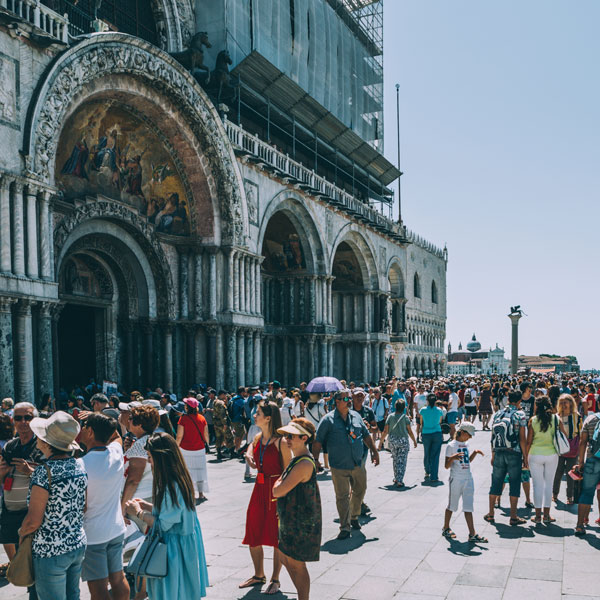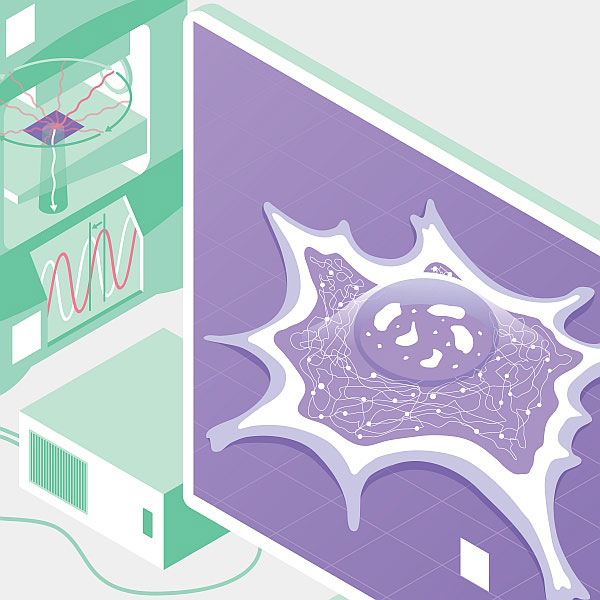Drone technology
“The air becomes a space of opportunity and risk”.
The geographer Francisco Klauser studies drones. The recent widespread use of this technology has led to a societal discovery of the air.

In the space above our heads, new battles are being fought – and the human geographer Francisco Klauser is observing them. | Image: Sébastien Agnetti und Gianni Camporota
Francisco Klauser, why are you interested in drones?
It all started with an initial astonishment. In 2008, military drones were used for the first time to monitor football fans over certain Swiss cities during the European Championship. I realised then that these small flying objects were becoming more and more a part of our everyday lives. It made me think about it. I wondered how these objects are changing our daily lives and how they affect us as individuals. If they are equipped to photograph or film, drones raise issues of security and privacy, just like surveillance cameras. With a doctoral student and post-doctoral fellow, we have therefore launched a research programme that studies the professional uses of drones on the one hand and the perception of them by the population on the other.
This technology is indeed part of our daily life...
Yes, we don’t have precise figures, but we have estimates indicating that there are more than 100,000 unmanned aerial vehicles (UAVs) in Switzerland. And that number is growing rapidly.
What impact does this have on our lives?
Generally speaking, this technology has led to a discovery of the air, of the space that surrounds us. For example, the police indicate that if drone access is limited, they may have to roll back the use of certain interventions. It is thanks to drones that they have started to think systematically about air, as a space to be monitored and defended, but also as a space to be used. Of course, they could turn to helicopters, but they are slower, less discreet and more expensive. Thanks to drones, the air makes possible a new form of police action. The police, like many other professions, are appropriating this space for this purpose.
This discovery of air, is it really new?
We were already aware of this space around us, but it was mentally and spatially more distant, less concrete. Of course, we see planes if we raise our heads, but they fly high and do not affect our daily lives. Drones, on the other hand, are closer: we see them, we hear them, sometimes we even feel them. And sometimes they fall. Drones make us look up and really feel the space that surrounds us, the space above our heads, above our houses and gardens. The Internet once enabled us to discover a new universe through its global connectivity. Thanks to drones, we’re also discovering a new universe, a new space.
Isn’t there a risk of conflict in this new space?
Questions have already been raised about regulations and the use of this space. Some federal authorities and police forces are wondering how to integrate drones in a space that is not so easy to occupy. There are houses, trees, high-voltage cables to avoid, birds not to be disturbed, wind, and so on. On a societal level, we can also ask ourselves who has the right to occupy this space. Can anyone take it over? Should it be reserved for certain uses? Surveys show that the use of UAVs by the police or the army is well accepted, whereas on the contrary, 75 percent of those questioned are hostile to the commercial use of UAVs, for example to take photos or deliver packages. The use by public actors is not perceived in the same way as the use by private actors. Finally, this space raises issues. The air is a space for competition. Actors will vie to establish themselves there. From small start-ups to companies developing more global services, there is a lot of demand.
What are the public’s concrete fears about the commercial use of UAVs?
People fear for their safety. In our study, for example, a very large majority of respondents, 80 percent, thought that the widespread use of drones could facilitate a terrorist attack. The population also fears accidents, especially in densely populated areas, such as urban environments. A falling drone can cause injury and panic. And people also fear for their privacy because the vast majority of drones are equipped with cameras.
Fears aside, what opportunities do drones offer?
This technology has enormous economic potential by opening the door to specific professional activities. Thanks to its development, in just a few years, many public and private players have been able to offer new services. The development is very rapid too. Moreover, Switzerland is seen as a centre of innovation in the field of UAVs. Companies or authorities that never before used the air now say they can no longer do without it. We are in the early stages of the expansion of this technology.
But only a limited number of actors will be able to take advantage of this...
Yes, that’s right. We see that even if these technologies are cheap and easily accessible, only a portion of actors are integrating them. In terms of the population and recreational use, it’s mostly young men, so the airspace is very gendered. It has always been so: just think of kings who scanned the horizon from the turrets of their castle. More recently, there have been cartographers and the military, who were also mostly men. In terms of professional use, some companies have mastered the technology, others not. There is a risk that the space above us remains the preserve of a privileged few. Technology is not necessarily going to help us create a fairer world.
Francisco Klauser is a professor of geography at the University of Neuchâtel and since 2014 has been leading a research programme on the use of civilian UAVs in Switzerland. He is supported in this study by Silvana Pedrozo, a doctoral student, and Dennis Pauschinger, a post-doctoral fellow.




